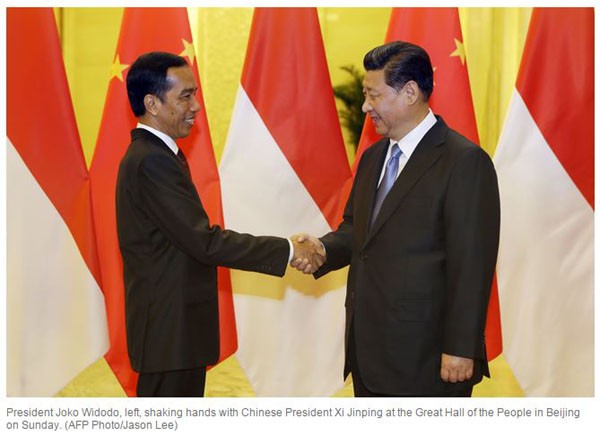Hatoyama China s Asia Pacific influence is irreversible
Post on: 16 Март, 2015 No Comment

China’s influence is growing irreversibly in the Asia Pacific region, former Japanese Prime Minister Yukio Hatoyama said in a keynote speech at the 3rd World Peace Forum (WPF) in Beijing on Saturday.
Former Japanese Prime Minister Yukio Hatoyama attends an interview at the 3rd World Peace Forum (WPF) in Beijing on June 21, 2014. [Kyodo News Agency]
According to International Monetary Fund (IMF) statistics, China has contributed 50 percent of Asian economic growth, Chinese State Councilor Yang Jiechi said in his address to the forum.
Asia now accounts for one third of the global economy and the proportion will rise to one half by the middle of the century as the world’s leading authorities have expected, he added.
Javier Solana, former EU High Representative for Foreign and Security Policy, spoke highly of Asian economic integration. But he is concerned that there is a long way to go for the region to achieve political and security integration on the same level.
Earlier, in May, President Xi Jinping proposed for Asia to build sustainable and durable security at the Conference on Interaction and Confidence Building Measures in Asia (CICA) Summit.
Yang said Asian countries cannot have crossed the threshold of the 21st century leaving one foot behind in the old zero-sum cold war era.
Hatoyama urged Japan, China, and South Korea work together to reach a consensus on a free-trade agreement and take a leading role in building the East Asian Community. But at first, Japan’s leaders must be courageous and face up to history, the former prime minister added.
Abe’s cabinet has attempted to reinterpret the current Pacifist Constitution by lifting a ban on collective self-defense.
According to Article 9 of the constitution, Japan forever renounces war as a sovereign right of the nation and the threat or use of force as a means of settling international disputes.
But Abe’s attempt will allow the country to fight with other nations under the umbrella of collective self-defense and escalate tensions in the East China Sea, said Wang Taiping, former consul general of China in Osaka.
Force only brings more force, former French Prime Minister Dominique de Villepin said. He proposed a political process, cooperation and dialogue to resolve disputes.
China insists that disputes in the East China Sea and South China Sea be settled through friendly consultations and negotiations between the countries involved, with full respect to historical facts and international law, Yang said.
Former U.S. national security advisor Stephen Hadley reiterated that the United States takes no position over the sovereignty disputes of the Diaoyu Islands. But the U.S. senior official alleged that the U.S. military presence in the Asia-Pacific region helps to cultivate a peaceful environment for China’s economy.
He suggested China and Japan suspend the disputes and in future let the next generation of the two countries solve the issue if we don’t have enough wisdom to find a solution now, quoting former Chinese Premier Zhou Enlai and Chinese leader Deng Xiaoping .
Hatoyama admitted in an interview at the WPF Sunday that the two countries had reached consensus on suspending the disputes when diplomatic relations were normalized in 1972. He urged Japan’s politicians to face up to the facts of the past.
China is determined to defend its national sovereignty and territorial integrity and will not bargain on its core interests, Yang said.
According to the state councilor, China is expecting US$1 trillion in imports, US$500 billion in overseas direct investment and 500 million outbound tourists in the next five years.
China hopes for regional stability and opposes any act that undermines good-neighborliness and mutual trust, Yang said.
Follow China.org.cn on Twitter and Facebook to join the conversation.
Print E-mail














